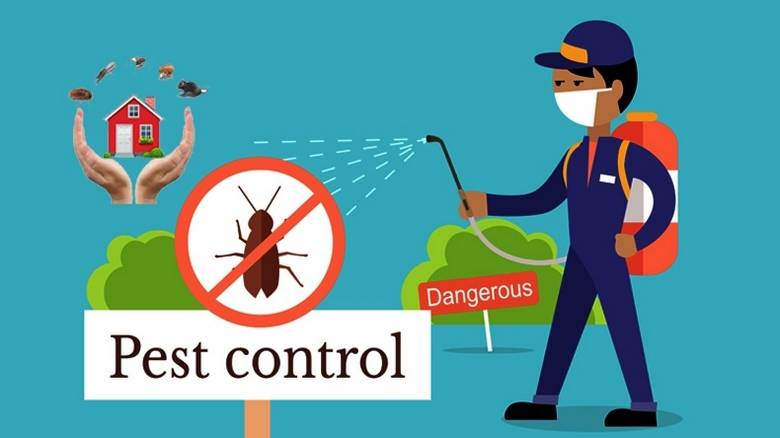Creating a pest-free environment in your residence is essential for maintaining contentment, hygiene, and peace of mind. discover this can not just be a hassle but can also present serious health hazards and result in significant damage to your premises. From ants parading through the cooking area to rodents sneaking in the framework, understanding how to create an unwelcoming atmosphere for these undesirable guests is the key to successful pest control.
This ultimate guide will examine different strategies for keeping your house pest-free throughout the year. We will investigate the common household pests you might encounter and how to eliminate them, the limitations of DIY pest control, and why expert assistance is often required. You will discover how to protect your residence in each season, recognize potential threats, and put into practice realistic prevention tips that make sure your living space remains protected and peaceful. By embracing these approaches, you can savor every season without the anxiety of pests entering your home.
Common Household Bugs and Control
Domestic pests can result in significant interference and health concerns in our daily lives. Some of the most typical pests include ant species, cockroaches, rodents, and arachnids. Some ants are often attracted to food sources left exposed in the open, while cockroaches thrive in warm, moist environments. Mice and rats like for enter homes through small cracks, seeking shelter and nourishment, while spiders are usually attracted indoors during colder months, looking for a secure place to build their nests.

Preventing these pests from invading your home starts with proper sanitation. Keeping edibles stored in sealed containers, regularly cleaning countertops, and promptly addressing spills can reduce the chances of attracting pests. Additionally, sealing up entry points, such as cracks in walls or gaps around windows and doorways, is important. Ensure view is well-maintained and organized; clutter can provide ideal hiding spots for pests.
Another effective prevention strategy involves routine pest checks. These inspections can help detect early signs of an invasion, allowing for swift action before the problem escalates. Homeowners should think about arranging professional pest control services periodically, especially in areas susceptible to pest issues. By being preemptive and maintaining a clean environment, you can establish an uninviting atmosphere for pests, significantly reducing the likelihood of infestations.
Season-based Pest Control Strategies
Comprehending the cyclical trends of insects is crucial for effective prevention. In spring, frequent pests such as termite ants and termites become active again as they seek nourishment and ideal places to nest. To combat these invaders, ensure that your home is sealed tightly, repair any leaks, and eliminate any stagnant water, as these can lure pests. Regular inspections during this season can help detect potential risks before they become major issues.
As the summer approaches, the warm weather invites a different set of pests, including mosquito and flies. To make the most of your yards without the buzz, use strategies like using citronella candles and caring for your yard by trimming excessively large vegetation. Installing webpage on windows and keeping doors secured can also significantly limit access for these annoying bugs. Don’t forget to check any standing water around your property, as this acts as a breeding ground for mosquito populations.
Come fall, many pests begin looking for refuge in homes to escape the colder weather. This is especially the case for rodents, which frequently look for entry points to make their homes. To stop these undesired guests, examine your home for spaces and crevices, particularly around doors, openings, and airways. Additionally, storing food in sealed jars and maintaining a tidy environment can deter rodents. Regular checks during this season will help you to be proactive against any possible invasions entering your house.
Effective Pest Control Methods
To effectively keep insects at bay, it's essential to use a blend of proactive measures and methods customized to specific threats. Frequently inspecting your home for ordinary household insects and sealing entry points can substantially reduce the risk of an infestation. Simple steps such as fixing leaks, sealing cracks, and keeping food stored properly can create an undesirable environment for pests, making it harder for them to establish a foothold in your space. Implementing these proactive strategies is frequently your initial line of defense.
In furthermore to prevention, employing focused pest control strategies is crucial when dealing with active infestations. Identifying the specific bugs you're facing can help you decide on the right approaches to eliminate them. For case in point, using natural pest control methods can be helpful for many kinds of bugs, while more serious issues like rodent control may require traps or professional intervention. It's essential to recognize that not all pest control products are created equal, and some may even harm the environment or your health.
Finally, for ongoing pest control, consider organizing regular professional pest control inspections. These evaluations provide an expert assessment of your home, ensuring that any potential issues are addressed before they escalate. Regular visits can help ensure a pest-free home all year long, adapting to seasonal changes that may bring various pests. By blending preventive actions, targeted solutions, and professional support, you can create a holistic strategy for successful pest control that protects your home and family.
